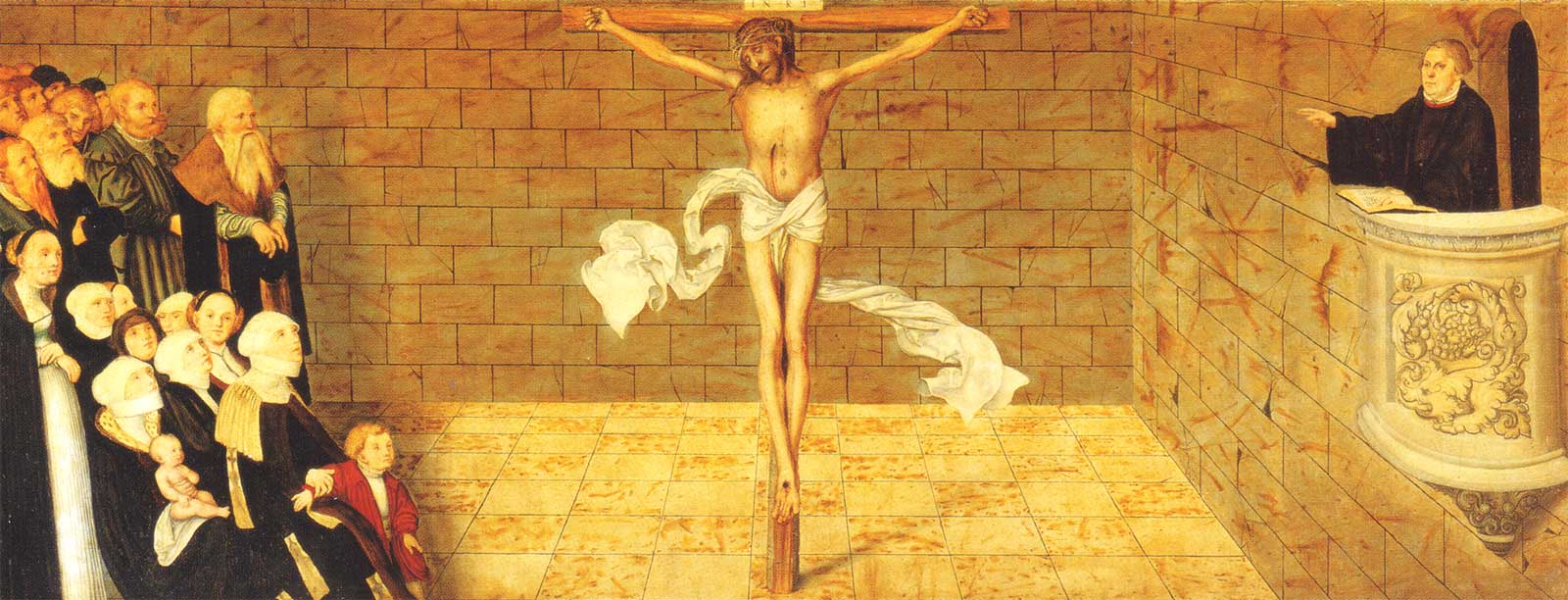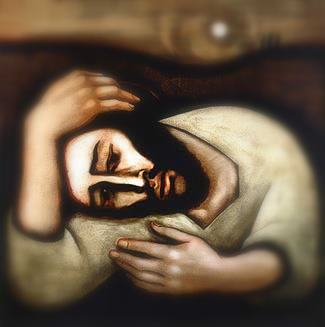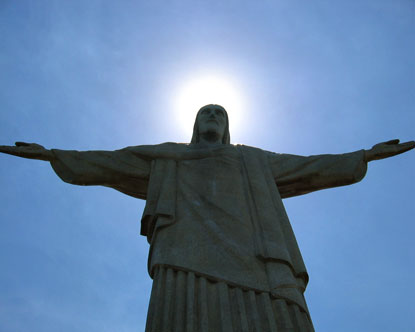
Here's a reboot of an older post...
Mike Reeves talks about Adam and Christ in these great audios on sin and evil. Once we frame creation and salvation as the story of two men we see things much clearer.
For one thing we're able to honour Christ not only as Substitute but also as Representative. And we need both.
You see Christ drinks the cup so that - in one sense - we don't have to (Mark 10:38). But in another sense we do drink the cup He drinks and are baptised with the baptism with which He is baptised (Mark 10:39). He does die for us so that we do not face that same judging fire - this is His substitution. But we also die in Him, hidden in our Head and taken through the flames - this is His representation.
We tend to be good at 'substitution' talk but not so good at 'representation' talk.
I can think of a very prominent preacher who I greatly admire. Ordinarily he's excellent at preaching Paul. But I've noticed that every time Paul speaks of "us being crucified with Christ", this preacher translates it as "Christ pays off our sins for us so completely, it's as if we ourselves died on the cross."
Do you hear what's happened? Paul uses representation language, the preacher translates it into substitution language. Paul says "We died in him", the preacher doesn't seem to have a category for that, so he simply re-iterates the substitution motif: "He died for us."
Those two things are not the same. And our lack of a category for "representation" thinking is a great loss.
Consider this fairly common way of conceiving salvation and judgement...

Here the key players are the saved and the damned. Christ is not in the picture. But of course once we've set things up like this, Christ becomes extremely necessary. Yet He's necessary in that the cross becomes the accounting tool required to balance the justice books. Without the cross the system doesn't work. So in that sense Christ is central. But in effect, He's a peripheral figure only required because other factors are calling the shots.
When things are viewed like this, Christ is very much thought of as 'substitute' but not really 'representative'. And, when the details are pressed, even His substitution will start to look very unlike the biblical portrait.
We need a better formulation. We'll think of 1 Peter 4 and then tie this back to Adam and Christ.
In 1 Peter 4:17 it says that judgement begins with the house of God. It doesn't say 'Judgement avoids the house of God.' It begins there. It begins with Christ, the true Temple of God. It continues with the church, the temple of God in another sense. But then it flows out to the world - God's house in yet another sense.

Here humanity is judged. And this is where Adam and Christ will be so helpful for us.
The LORD pronounces His curse on Adam. And all humanity is in him. "Sin came into the world through one man, and death through sin, and so death spread to all men because all sinned." (Rom 5:12) It is a universal judgement. No exceptions. The only path to salvation is the path through judgement.
But Adam is a type of the One to come (Rom 5:14). He was only ever setting the scene for Christ to take centre stage. And He does so, assuming the very humanity of Adam as substitute and representative.

Here centre stage is not occupied by the two groups of people (the damned and the saved). What's driving everything is the two humanities (Adam and Christ). The former is expressly a type of the Latter. And the Latter expressly assumes the fate of the former. So that in all things Christ will have the preeminence! (Col 1:18)
These diagrams were originally used in a blog post on judgement and salvation in Isaiah and for a sermon on Isaiah 2:6-22 (listen here).
.
Below I've listed 10 verses on union with Christ in His death. Meditate on these verses - and reckon yourself dead to Adam, to the flesh, to sin, to wrath, to the law, the principalities and powers and to the world. For the living, those powers exact a terrible penalty. But you know what a corpse owes these things? Absolutely jack squat.
#EnjoyYourDay:
All of us who were baptised into Christ Jesus were baptised into his death We were therefore buried with him through baptism into death in order that, just as Christ was raised from the dead through the glory of the Father, we too may live a new life. (Romans 6:3-4)
In the same way, count yourselves dead to sin... (Romans 6:11)
Our old self was crucified with him so that the body ruled by sin might be done away with. (Romans 6:6)
You died to the law through the body of Christ, that you might belong to Another. (Romans 7:4)
I was crucified with Christ and I no longer live. (Galatians 2:20)
I belong to Christ and thus my flesh has been crucified. (Galatians 5:24)
The world has been crucified to me and I to the world. (Galatians 6:14)
In Christ you were also circumcised with a circumcision not performed by human hands. Your whole self ruled by the flesh was put off when you were circumcised by Christ, having been buried with him in baptism. (Colossians 2:11-12)
You died with Christ to the elemental spiritual forces of this world (Colossians 2:20)
You died, and your life is now hidden with Christ in God. (Colossians 3:3)
.


















